Value Derived From Precedent.
When a Scarce Asset Delivers a Once-in-a-Generation Shift in Capability, Buyers Pay for Impact, Not Revenue.
- Additive Levers: Each driver stands alone as a source of incremental enterprise impact.
- Compounding Effect: Drivers reinforce each other, amplifying the strategic premium of the whole.
- Precedent Proof: Buyers have paid billions for assets where incremental drivers compounded into one deal.
This framework shows why Apex is not valued on SaaS multiples. It is valued on its enterprise impact, grounded in precedent and multiplied by nine.
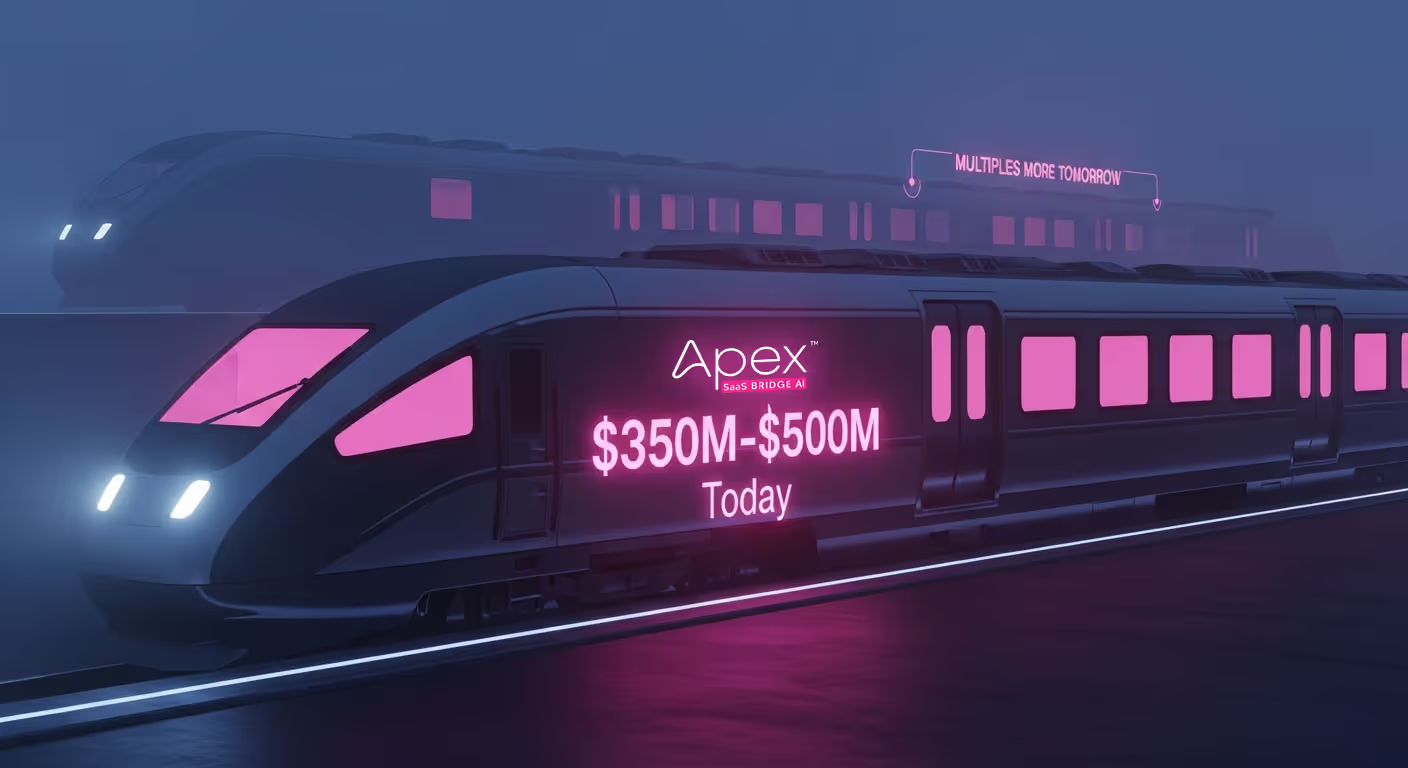
Unpack the Business Case to Acquire the Apex SaaS Bridge Technology

Owning the Future Before It Exists.
Apex Mirrors Landmark Pre-Revenue Acquisitions Where Buyers Acquired Scarce, Category-Defining IP That Competitors Couldn’t Replicate.

- Google / DeepMind (2014, $500M): Pre-revenue AI lab, acquired to own frontier ML capabilities and deny rivals access.
- Apple / Lattice Data (2017, $200M): Pre-revenue AI data startup, acquired to unlock “dark data” for Apple’s ecosystem.
- Salesforce / MetaMind (2016, $32M): Early-stage AI, acquired to seed Einstein.
Apex, as the first AI-native middleware integrated with technology providers collectively serving over 30,000 clubs, fits this precedent exactly: a one-time chance to own the foundation others will spend years chasing.
Renting vs Building vs Buying
SaaS Providers are Renting Backends and External AI Models Because They Cannot Build Them Internally. Apex is the Alternative They Can Own.
- Google / Apigee (2016, $625M): Acquired API integration layer to shortcut years of in-house build.
- Google / Alooma (2019, ~ $175M): Bought data pipeline tech to accelerate cloud adoption.
- ServiceNow / Element AI (2020, $230M): Pre-revenue AI, acquired to inject automation into workflows rather than building.
Apex SaaS Bridge Technology’s integrations confirm that it works and is capable of being monetized immediately upon acquisition.
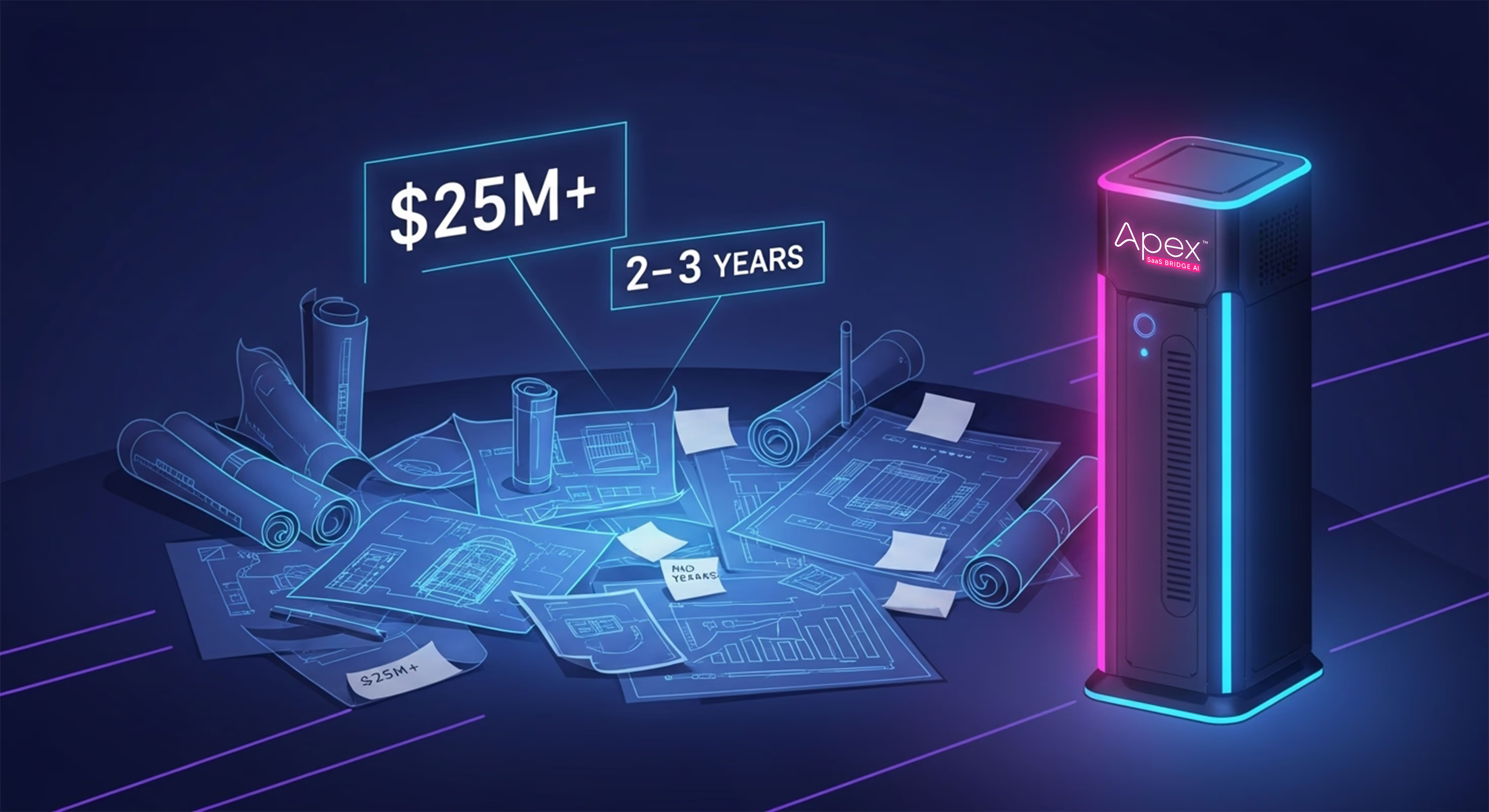
Time-to-Value Acceleration
Apex Can Deploy in 60–90 Days Versus the 18–24 Months a Custom Integration Requires.

Buyers pay for acceleration when speed creates competitive advantage.
- Google / AppSheet (2020, ~ $100M): Acquired no-code automation to speed product rollout.
- Salesforce / MapAnything (2019, $213M): Acquired for instant geo-mapping functionality.
- McDonald’s / Apprente (2019, undisclosed): Pre-revenue voice AI, acquired to instantly modernize drive-thru ordering.
The acquisition of Apex gives its buyer immediate leadership in Fitness BI and a built-in runway to redefine the market with AI.
Immediate Monetizable BI Revenue
The Pre-Requisite of Artificial Intelligence is Business Intelligence. Apex’s Integrations Can Immediately Be Monetized as BI Revenue, at Scale.
assets with integrations and/or hooks that provide day-one monetization leverage.
- Dropbox / HelloSign (2019, $230M): Early revenue, acquired to upsell into existing Dropbox base.
- Atlassian / StatusPage (2016, $40M): Small ARR, acquired to monetize dashboards directly across Atlassian users.
- GM / Cruise (2016, ~ $1B): Pre-revenue, acquired for integrations into GM fleet → near-term monetization of self-driving capability.
Converting just 25% of the locations Apex’s BI capability is already integrated with into paying customers — at industry-accepted BI rates ($500/Month/Location) would unlock over $50M in net new ARR for an acquirer.
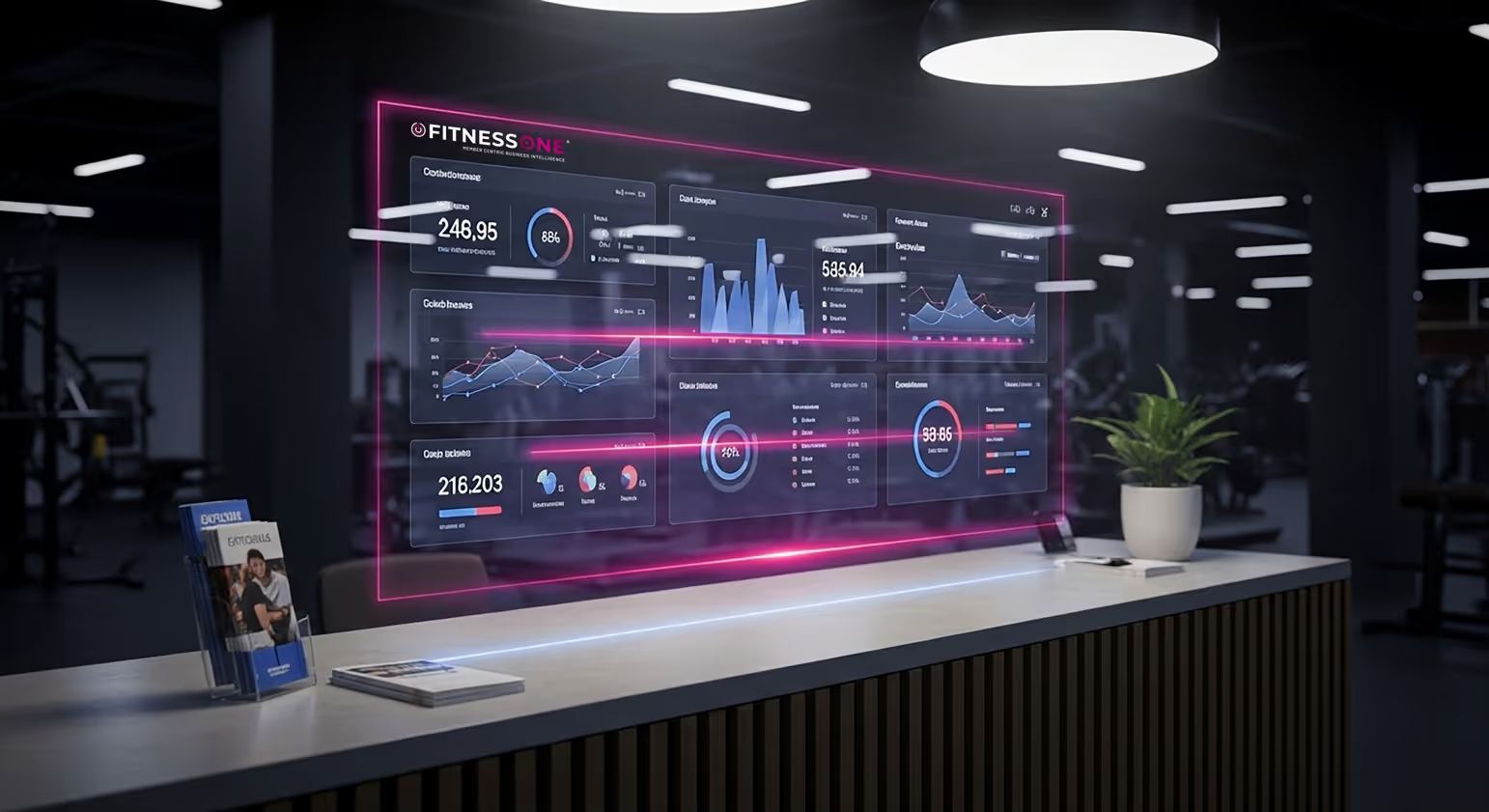
BI-Driven Customer Conquest Engine
Apex Turns BI Data Inside Competitor Ecosystems Into A Customer Conquest Playbook.
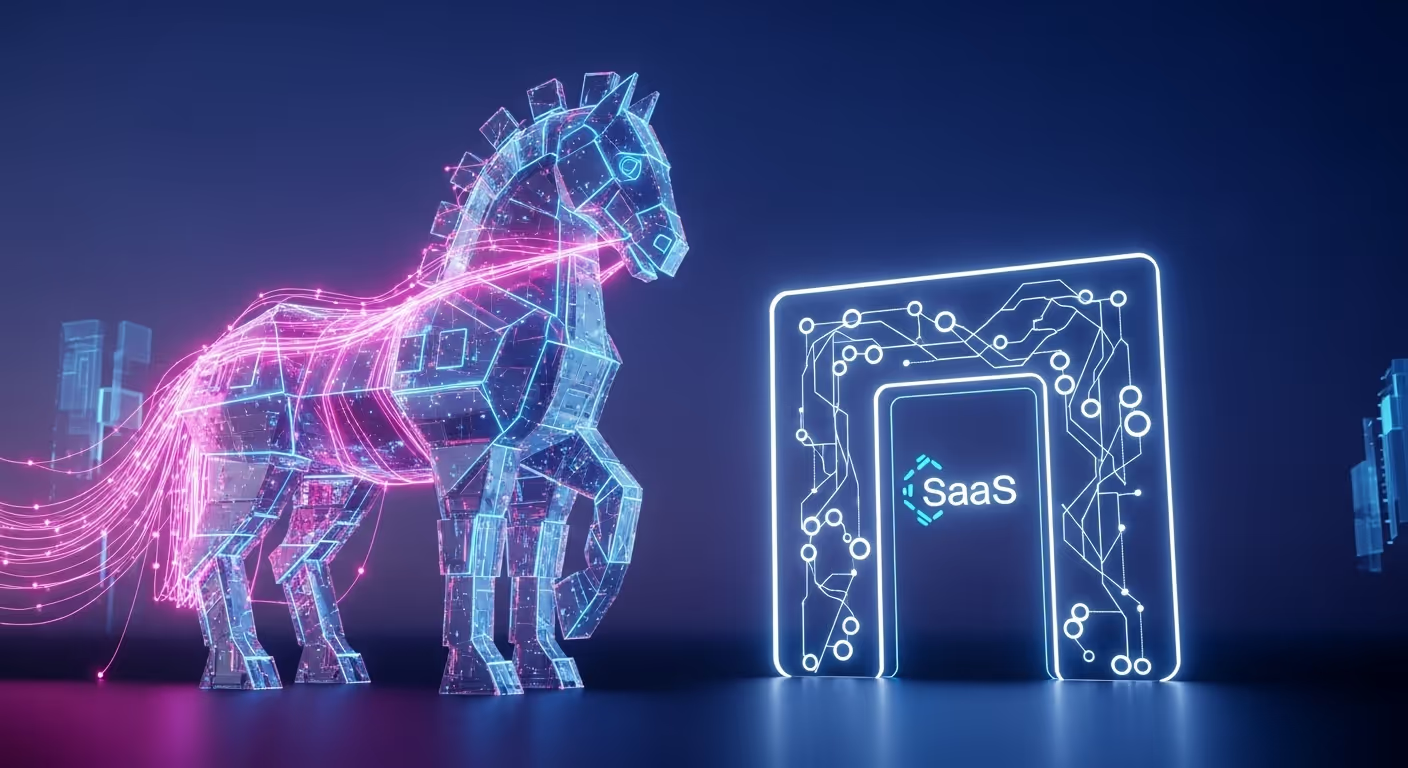
When data creates insight into rival customer behavior, it becomes a lever to win migrations. Buyers have repeatedly paid for assets that convert visibility into market share.
- Facebook / Onavo (2013, ~ $150M): Pre-revenue app, acquired to gain customer insight and target rivals.
- Google / Firebase (2014, ~ $100M): Early-stage, acquired to embed SDK into non-Google apps and convert developers.
- Zendesk / Base CRM (2018, ~ $50M): Early-stage CRM, acquired to wedge into customer accounts and later migrate them.
Apex provides the same leverage — standardizing competitor customer data and making migrations seamless, rapid, and repeatable.
The Bridge From Data to Intelligence
Legacy Stacks Aren’t AI-Ready. Apex Eliminates That Problem Overnight, Creating an Enablement Premium That Buyers Have Repeatedly Valued.
- DocuSign / Seal Software (2020, $188M): Early-stage AI.
- Thomson Reuters / Casetext (2023, $650M): Early ARR, acquired for domain-specific AI.
- Intel / Nervana (2016, $400M): Pre-revenue AI chip + training data, acquired to anchor Intel’s AI stack.
Apex plays the same role in fitness SaaS — embedding AI capability directly into legacy stacks and delivering enterprise-wide enablement without retrofitting.
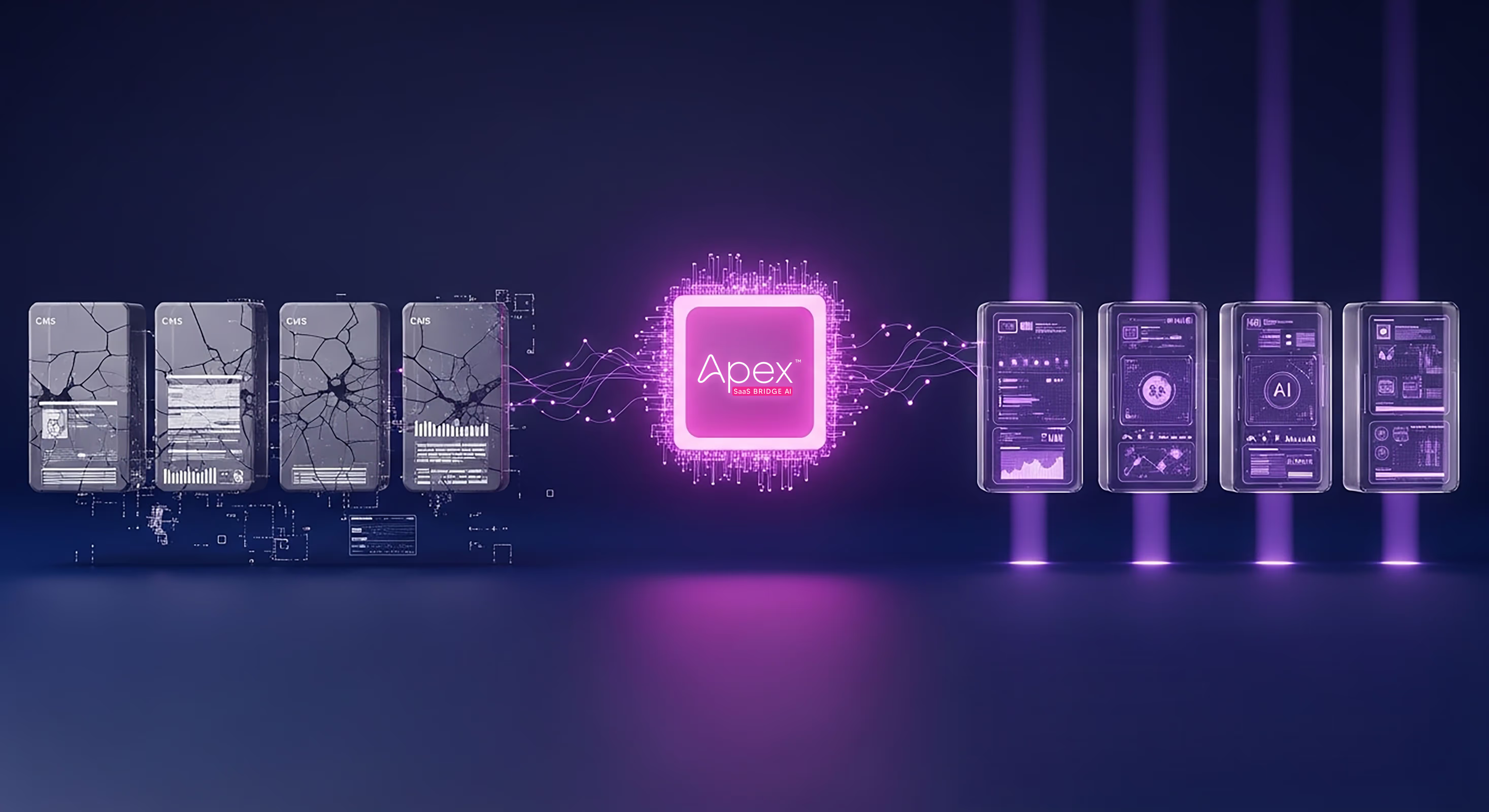
Turning Stacks Into Platforms
Apex Unifies Brittle Silos into Full-Stack, Defensible Platforms that Transform Tech Stacks into AI Ready Operating Systems.
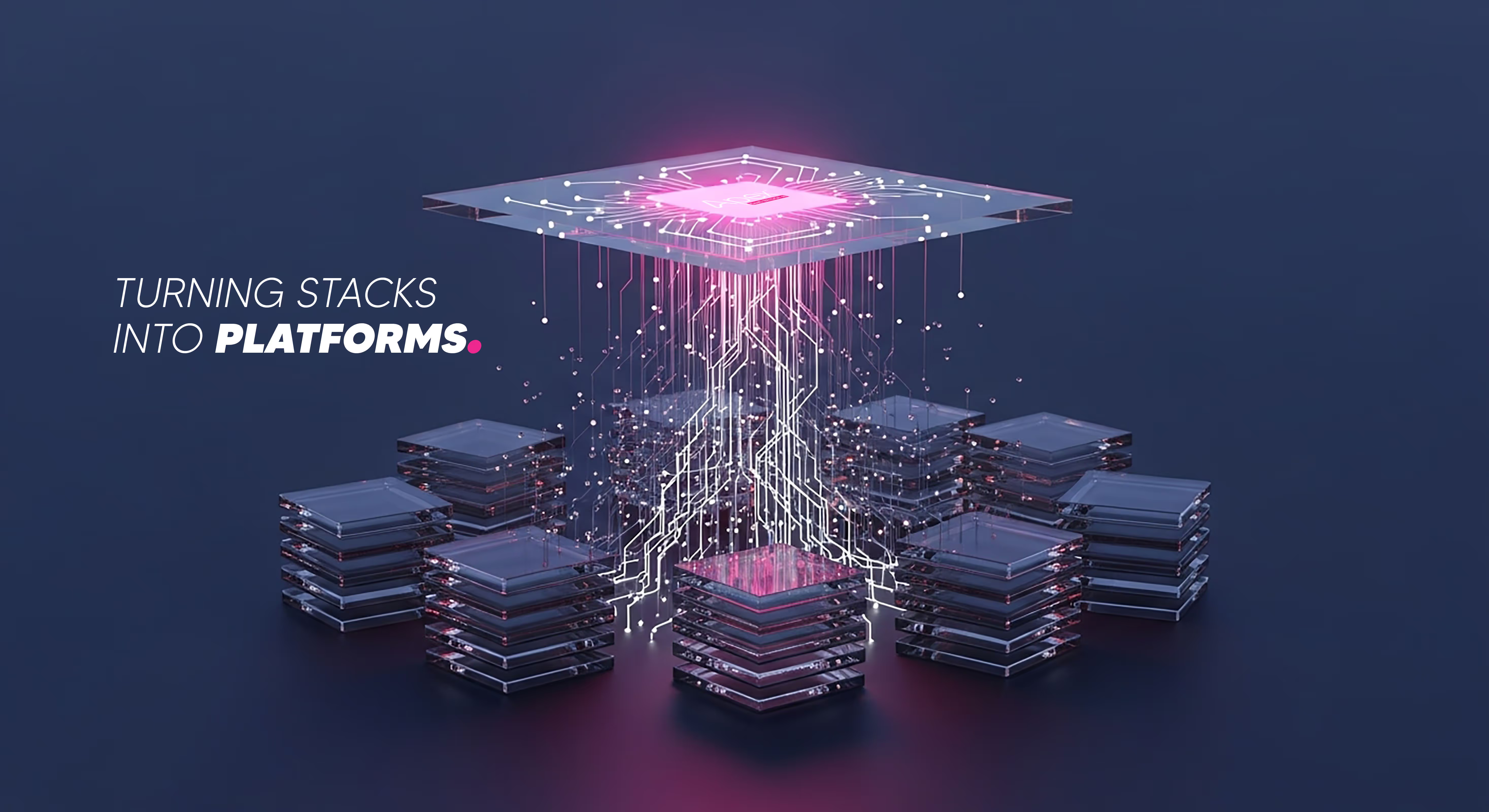
Completion assets trade at premiums when they fill critical gaps, turning fragmented tools into platforms. Buyers have paid up even when revenue was limited, because strategic control was at stake.
- Cisco / AppDynamics (2017, $3.7B, pre-IPO): Early revenue, acquired to complete Cisco’s full-stack monitoring suite.
- VMware / Nicira (2012, $1.26B): Pre-revenue SDN startup, acquired to complete VMware’s virtualization platform.
- Autodesk / PlanGrid (2018, $875M): Early ARR, acquired to unify construction workflows into Autodesk’s platform.
Apex plays the same role — completing fragmented portfolios into full-stack platforms that command higher multiples, regardless of revenue.
Strategic Control — One Opportunity, One Buyer.
Apex is the Only AI-Native Middleware. Whoever Acquires it Denies Competitors Permanent Access to the Intelligence Layer.
- Apple / Turi (2016, ~ $200M, pre-revenue): Acquired to lock up machine learning frameworks for developers, ensuring rivals couldn’t embed Turi’s algorithms into their own platforms.
- Microsoft / Maluuba (2017, undisclosed, pre-revenue):
Bought to secure cutting-edge natural language processing research and prevent competitors from gaining that core AI capability. - Intel / Nervana Systems (2016, ~ $400M, pre-revenue):
Acquired to own deep learning IP and deny rival chipmakers access to its proprietary training models and frameworks.
The buyer that secures Apex controls the only AI-native foundation in fitness SaaS and denies every rival the chance to catch up.

Gatekeep Your Most Valuable Commodity - Your Data
The Biggest SaaS Companies Most Valuable Asset is the Data Living Within Their Systems. Apex Activates and Contextualizes That Data with Enterprise AI That its Acquirer Owns.

- Monsanto / Climate Corp (2013, $930M): Pre-revenue ag-data startup, acquired for proprietary weather/crop datasets.
- Google / Fitbit (2021, $2.1B): Early revenue, acquired for proprietary health/activity data.
- Apple / Turi (2016, ~ $200M): Pre-revenue ML startup, acquired for its unique data models.
The true moat Apex offers is the system that normalizes and contextualizes industry data — a foundation that amplifies every product layered on top.
